Find Help
More Items From Ergsy search
-
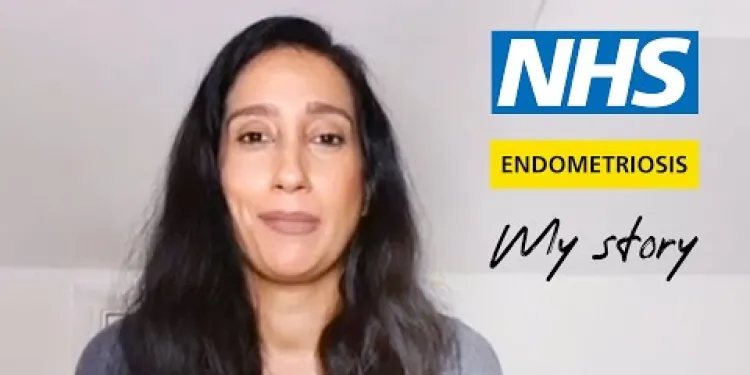
Endometriosis - My Story | NHS
Relevance: 100%
-
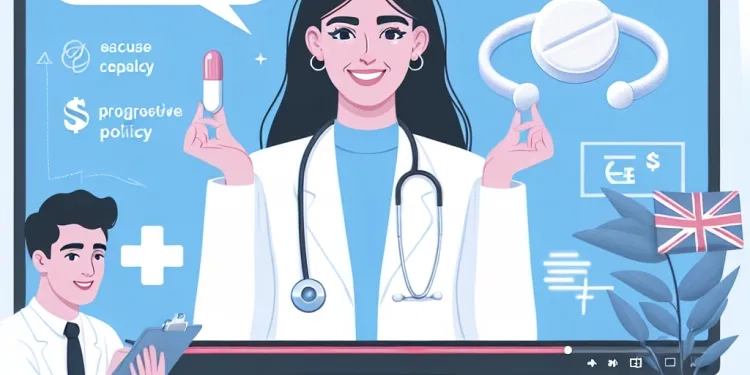
New endometriosis pill approved on NHS in England
Relevance: 86%
-

Uncomfortable Conversations — Niti Patel on endometriosis | NHS Digital
Relevance: 86%
-

Female infertility explained
Relevance: 33%
-
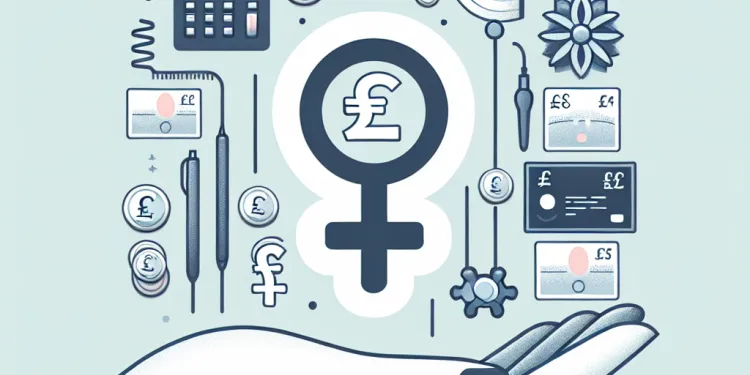
What are the reasons for female infertility?
Relevance: 32%
-

Who might need IVF?
Relevance: 26%
-
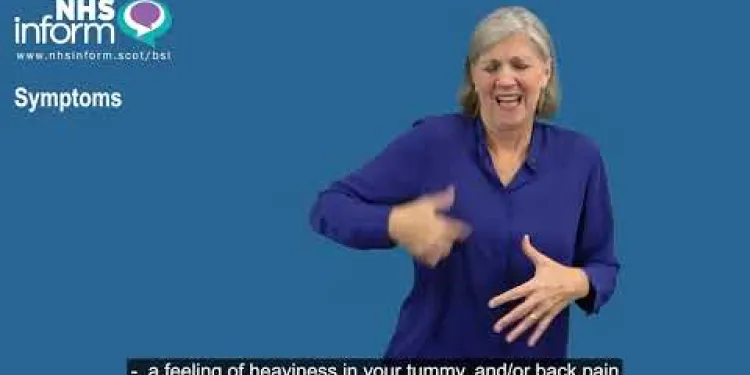
Period pain (dysmenorrhoea) - BSL
Relevance: 21%
-
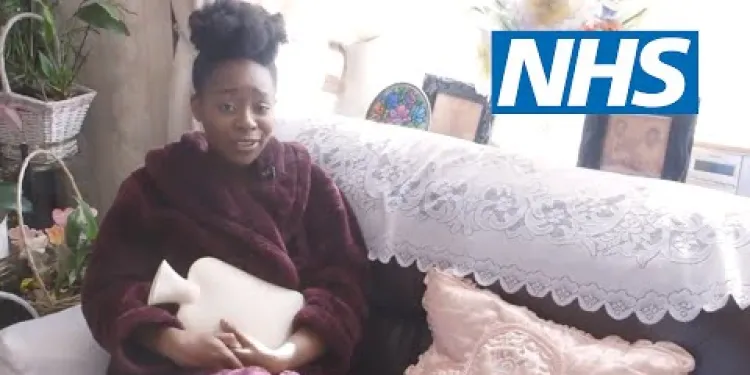
How to deal with period pain | NHS
Relevance: 18%
-
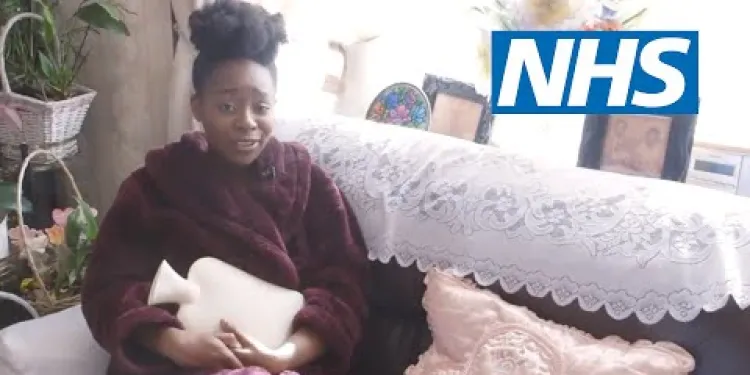
How to deal with period pain | NHS
Relevance: 18%
-
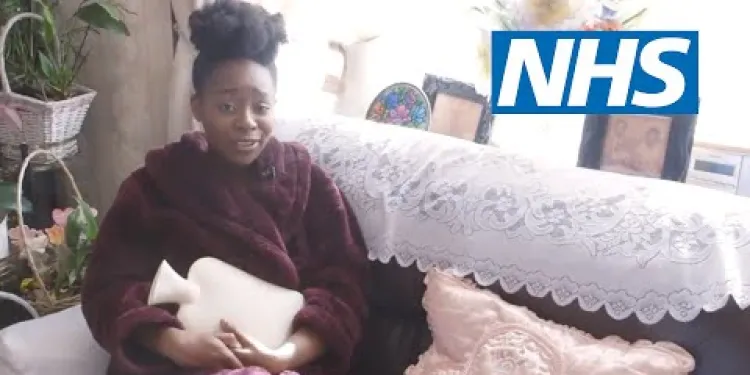
How to deal with period pain | NHS
Relevance: 18%
-

Does IVF guarantee pregnancy?
Relevance: 18%
-
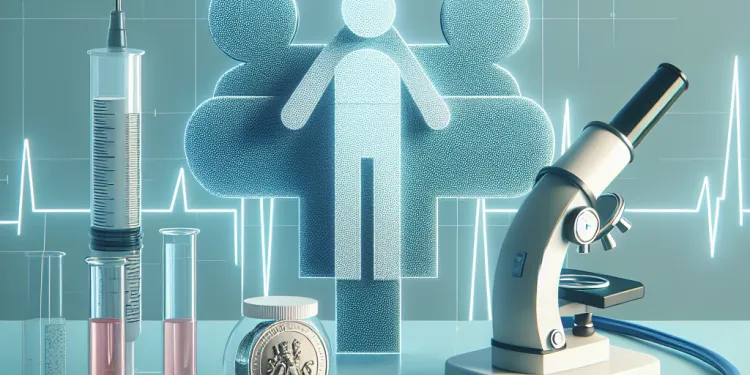
How do clinics determine if IVF is the right option?
Relevance: 18%
-
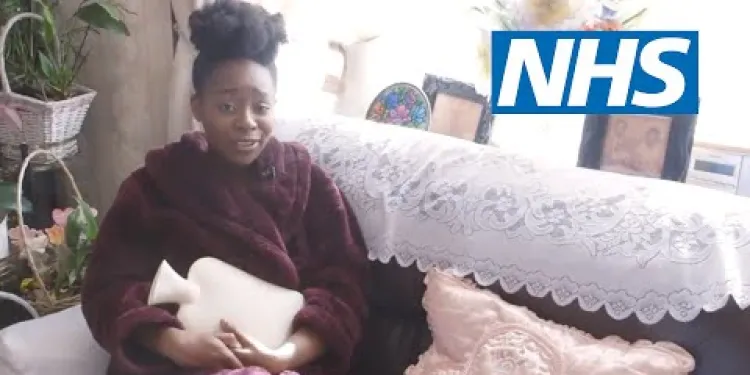
How to deal with period pain | NHS
Relevance: 18%
-
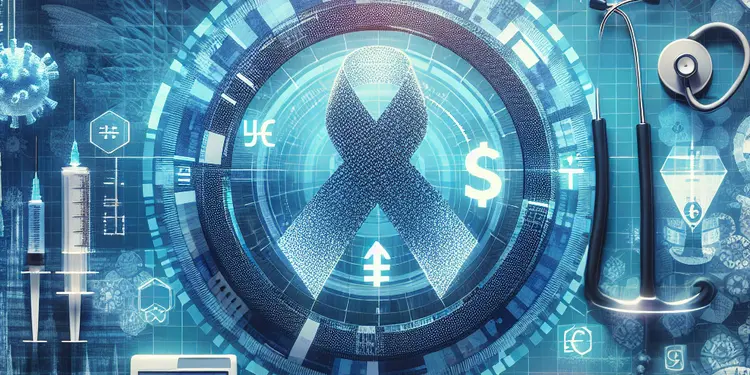
What is a CA-125 test?
Relevance: 18%
-
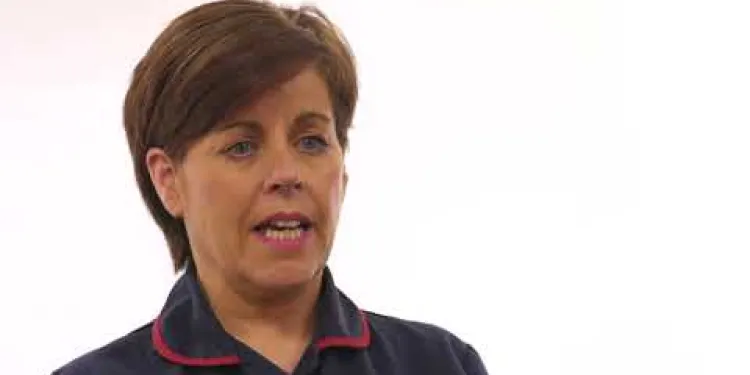
Ovarian Cancer
Relevance: 14%
-

Raising awareness of ovarian cancer
Relevance: 12%
-

Can I use Ibuprofen for menstrual pain?
Relevance: 12%
-
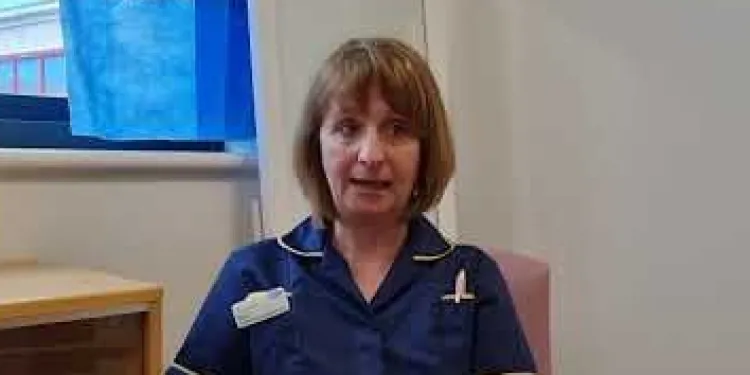
Ovarian cancer - signs and symptoms to look out for
Relevance: 6%
-
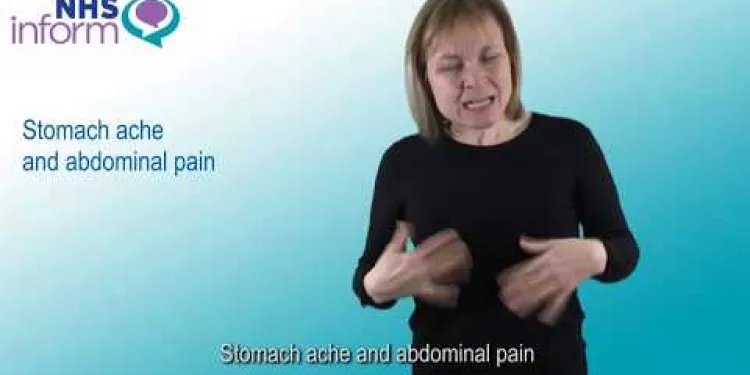
Stomach ache and abdominal pain
Relevance: 6%
-
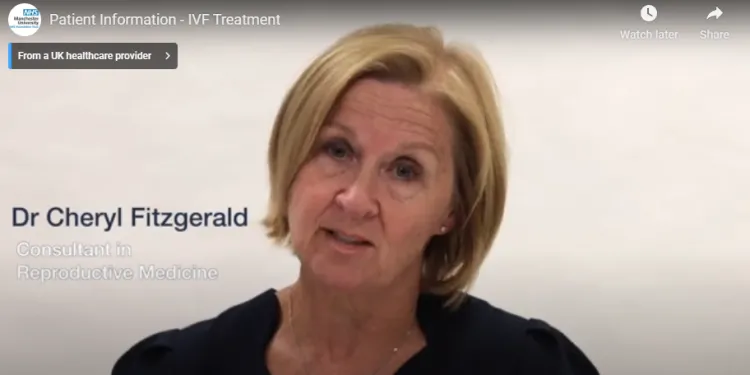
Infertility - IVF Treatment and Patient Information
Relevance: 6%
-

How does IVF work?
Relevance: 6%
Uncomfortable Conversations — Niti Patel on Endometriosis
Understanding Endometriosis
Endometriosis is a condition where tissue similar to the lining inside the uterus, called endometrium, starts to grow outside the uterus. This can lead to severe pain and other complications. Despite affecting 1 in 10 women of reproductive age in the United Kingdom, it often goes undiagnosed or misdiagnosed for years.
Breaking the Silence
Niti Patel, a champion for women's health and a significant voice within the NHS Digital community, emphasizes the importance of talking openly about endometriosis. She points out that many women feel uncomfortable discussing their symptoms, leading to prolonged suffering. By breaking the silence around this topic, Patel aims to foster an environment where women feel empowered to seek help.
The Role of NHS Digital
NHS Digital plays a crucial role in promoting awareness and providing accurate information about endometriosis. Their resources help women understand their symptoms better and navigate the healthcare system more effectively. According to Patel, digital tools and platforms can bridge the gap in healthcare accessibility and offer support to those in need.
Resources and Support
Patel encourages women who suspect they might have endometriosis to use NHS Digital's online resources. These resources include symptom checkers, patient stories, and expert advice on managing the condition. Furthermore, online communities and support groups facilitated by NHS Digital can provide much-needed emotional support.
Conclusion
Endometriosis is a condition shrouded in misunderstanding and silence. Niti Patel's work with NHS Digital highlights the importance of bringing this issue into the open. By leveraging digital tools and fostering honest conversations, we can create a more supportive environment for women suffering from this debilitating condition in the UK.
Uncomfortable Conversations — Niti Patel on Endometriosis
What is Endometriosis?
Endometriosis is when tissue, like the inside of the womb, grows outside the womb. It can cause a lot of pain. It affects 1 in 10 women in the UK, but many do not know they have it for a long time.
Talking About It
Niti Patel wants women to talk about endometriosis. She says talking helps stop pain sooner. Many women feel shy or scared to talk about their symptoms. Niti wants women to feel strong and get help.
The NHS Digital's Help
NHS Digital helps people learn about endometriosis. They give good information so women can understand their symptoms and get the right help. Digital tools make it easier for women to find support and care.
Where to Get Help
If you think you have endometriosis, use NHS Digital's online help. They have tools to check symptoms, read stories, and get tips from experts. There are also online groups where women can talk and support each other.
Final Thoughts
Endometriosis is not well understood, and many do not talk about it. Niti Patel is working with NHS Digital to change this. Using digital tools and open talks, we can support women suffering from this condition in the UK.
Frequently Asked Questions
What is endometriosis?
Endometriosis is a chronic condition where tissue similar to the lining inside the uterus grows outside it, causing pain and potentially affecting fertility.
What are the common symptoms of endometriosis?
Common symptoms include pelvic pain, painful periods, pain during or after sex, painful bowel movements, fatigue, and in some cases, fertility issues.
How is endometriosis diagnosed?
Diagnosis often involves a combination of pelvic exams, ultrasounds, MRIs, and laparoscopies, where a small camera is inserted into the abdomen to look for endometriosis tissue.
Who is at risk of developing endometriosis?
Endometriosis can affect anyone with a uterus, but it is most commonly diagnosed in women in their 30s and 40s. Risk factors include never giving birth, starting periods at an early age, and having short menstrual cycles.
Can endometriosis be cured?
There is currently no cure for endometriosis, but treatments are available to manage symptoms and improve quality of life.
What are the treatment options for endometriosis?
Treatment options include pain relief medications, hormone therapies, and surgical procedures like laparoscopy to remove endometriosis tissue.
Can endometriosis affect fertility?
Yes, endometriosis can affect fertility. It can cause scar tissue and adhesions, which can interfere with the function of the ovaries, fallopian tubes, and other reproductive organs.
Is endometriosis a common condition?
Endometriosis is relatively common, affecting around 1 in 10 women of reproductive age. However, many cases go undiagnosed due to a lack of awareness and the varying severity of symptoms.
Can lifestyle changes help manage endometriosis symptoms?
Yes, lifestyle changes such as regular exercise, a balanced diet, stress management, and avoiding alcohol and caffeine can help manage symptoms.
Is endometriosis related to period pain?
Yes, period pain is a common symptom. However, the pain associated with endometriosis is often more severe than typical menstrual cramps and can occur at other times in the menstrual cycle.
Can men get endometriosis?
Endometriosis occurs primarily in women and those assigned female at birth, as it involves tissue similar to the lining of the uterus.
How does endometriosis affect daily life?
Endometriosis can significantly impact daily life, causing chronic pain, fatigue, emotional distress, and difficulties with daily activities and work.
What should I do if I think I have endometriosis?
If you suspect you have endometriosis, you should speak to your GP who can refer you to a specialist for further evaluation and diagnosis.
Can endometriosis recur after treatment?
Yes, endometriosis symptoms can recur after treatment. Ongoing management and monitoring by a healthcare professional are important.
Are there support groups for people with endometriosis?
Yes, there are numerous support groups and organisations, like Endometriosis UK, that offer support, information, and resources for those affected by the condition.
What is endometriosis?
Endometriosis is a sickness. Women can get it. It makes tissue like the inside of the womb grow outside the womb. This can hurt a lot.
Signs you might have endometriosis:
- Pain in your tummy, especially during your monthly period.
- Hurts when you go to the toilet.
- Trouble having a baby.
If you think you might have endometriosis, talk to a doctor. They can help you feel better.
Helpful Tips:
- Use pictures to understand better.
- Listen to stories from other people with endometriosis.
- Write down questions to ask your doctor.
Endometriosis is a long-term condition. It means that tissue, like the kind inside the womb, grows outside the womb. This can cause pain and might make it harder to have babies.
What are the common signs of endometriosis?
Endometriosis is when tissue like that in the womb grows outside of it. Here are common signs:
- Pain in the tummy or lower back.
- Pain during periods or heavy bleeding.
- Pain when using the toilet.
- Feeling very tired.
Use pictures or videos to help understand. Talk to someone if you have questions.
You might feel pain in your lower stomach. Periods can hurt a lot. It can hurt to go to the toilet or after you have sex. You might also feel very tired, and some people find it hard to have babies.
A helpful tool is a calendar or app to track your symptoms. This can help you and your doctor understand what is happening.
How do doctors find out if you have endometriosis?
To find out if someone has endometriosis, doctors do a few tests. They might check the belly area with their hands, which is called a pelvic exam. They might also use pictures of the inside of the body. These pictures can come from a special camera (ultrasound or MRI) or a little camera that goes inside the belly (laparoscopy) to look for signs of endometriosis.
Tools that help with understanding and learning might be useful. You can use apps with pictures and videos or ask someone to explain things in a different way.
Who can get endometriosis?
Some girls and women can get a condition called endometriosis. It can cause pain. Here's who might get it:
- Women who have their periods.
- Women in their 30s and 40s, but younger girls can get it too.
- If your mom or sister has it, you might have it too.
- If you have heavy or painful periods.
If you think you have endometriosis, talk to a doctor. They can help you feel better.
Ask an adult to help you understand or use picture charts to see what endometriosis is.
Endometriosis can happen to anyone with a womb. It is usually found in women who are in their 30s and 40s. You might have a higher chance of getting endometriosis if you:
- Have never had a baby.
- Started your periods when you were young.
- Have short menstrual cycles.
If you need help understanding or remembering this information, try using pictures or talking it through with someone you trust. You can also use apps or tools that read text out loud to you.
Can endometriosis be fixed?
There is no cure for endometriosis right now. But, there are treatments that can help with symptoms and make life better.
What can help if you have endometriosis?
Doctors can help with medicine to make pain go away. They can also give hormone treatments. Sometimes, doctors do a small surgery called laparoscopy to take out bad tissue. Using picture cards or drawing can help understand these. You can also ask someone to read and explain things to you.
Can endometriosis make it hard to have a baby?
Endometriosis is when tissue that acts like the lining inside the uterus grows outside it. This can make it hard to have a baby. If you are worried about this, talk to a doctor.
Helpful tools: Pictures and simple charts can help you understand better. You can also ask someone you trust to explain.
Yes, endometriosis can make it harder to have a baby. It can cause scar tissue and sticky bits that can get in the way of how the ovaries and other baby-making parts work.
Is Endometriosis Common?
Endometriosis is a health problem. It happens to some women. It is not very rare, but not all women have it.
Would you like to know more? You can ask a doctor or nurse. They can help explain.
Here are some tools to help you understand more:
- Watch videos about endometriosis.
- Find picture books that explain it.
- Ask someone to talk with you about it.
Endometriosis is a health problem that many women have. It happens to about 1 in 10 women who can have babies. But, many women do not know they have it because people don’t talk about it much, and the signs can be different for each person.
Can changing how you live help with endometriosis pain?
Endometriosis can cause pain. Here are some simple changes that might help:
- Eat healthy: Try to eat fruits, vegetables, and whole grains.
- Exercise: Moving your body can help you feel better.
- Relax: Doing things like deep breathing can help with stress.
- Sleep: Getting enough sleep is very important.
These changes might not stop all the pain, but they can make things better. You can also talk to a doctor for more help.
Yes, making some changes in your daily life can help. Doing exercise often, eating healthy food, staying calm, and not drinking alcohol or caffeine can make you feel better.
Is Endometriosis Linked to Period Pain?
Can endometriosis make periods hurt?
Some ways to help:
- Ask a doctor for advice.
- Use a heating pad on your belly.
- Try relaxation or gentle stretches.
- Take medicine if the doctor suggests it.
Yes, feeling pain during your period is normal. But pain from endometriosis is usually stronger than regular period cramps. This pain can also happen at other times, not just when you have your period.
Can men have endometriosis?
No, men cannot have endometriosis. Only women can have endometriosis because it affects the uterus.
Endometriosis is when tissue like the lining inside the uterus grows outside of it. This can cause pain.
If you want to learn more, you can ask a doctor or use tools like videos or pictures to help understand.
Endometriosis is a health problem. It mostly affects women and people who were born female. It happens when tissue similar to the inside of the uterus grows in other places.
How does endometriosis affect daily life?
Endometriosis can make people feel pain in their tummy. This can happen often.
It might hurt when they play, study, or rest.
People might feel very tired when they have endometriosis.
If someone has endometriosis, they might miss school or work.
It's good to talk to a doctor or a nurse. They can help.
Using a heating pad can make the tummy feel better. Resting can also help.
Endometriosis is a big word for a health problem. It can make life tough. It might give you pain often, make you feel very tired, make you feel sad or upset, and make it hard to do things like playing, going to school, or working.
What to Do if You Think You Have Endometriosis
1. Talk to a Doctor: If you feel pain in your tummy, talk to a doctor. They can help you.
2. Keep Notes: Write down when you feel pain. This can help the doctor understand more.
3. Ask for Support: Talk to family or friends about how you feel. They can give you support.
4. Learn More: Ask the doctor to explain what endometriosis is. It's okay to ask questions.
5. Use Helpful Apps: There are phone apps to help you keep track of your feelings and pain.
If you think you have a sickness called endometriosis, you should talk to your doctor. Your doctor can help you see a special doctor who knows more about this. They can check you and tell you if you have it.
Can endometriosis come back after treatment?
Endometriosis can come back after treatment. Sometimes, not all of it is removed or stops growing. It's important to keep going to the doctor for check-ups. If you are worried, talk to your doctor. They can help and give advice.
Tools that can help:
- Calendar: Write down when you have pains or other symptoms.
- Diary: Keep track of how you feel. This can help your doctor understand your problem better.
Remember, you are not alone. Doctors and nurses can help you feel better.
Yes, endometriosis symptoms can come back after treatment. It's important to keep seeing a doctor to help manage and check the symptoms.
If reading is hard, try these tips:
- Ask someone to read it with you. Two heads are better than one!
- Use apps that read text out loud. Hearing the words can help.
- Take breaks if you feel tired. Rest your mind.
Are there support groups for people with endometriosis?
Yes, there are groups that can help people with endometriosis.
Endometriosis is a health problem that can be painful.
Joining a group can be a good idea to talk and learn with others.
These groups can be online or in person.
You can use the internet to find a group. You might want to ask a doctor or nurse for ideas. They might know some good groups to join.
Yes, there are many groups and places that can help. One is called Endometriosis UK. They give support, information, and help to people with endometriosis.
Useful Links
This website offers general information and is not a substitute for professional advice.
Always seek guidance from qualified professionals.
If you have any medical concerns or need urgent help, contact a healthcare professional or emergency services immediately.
- Ergsy carfully checks the information in the videos we provide here.
- Videos shown by Youtube after a video has completed, have NOT been reviewed by ERGSY.
- To view, click the arrow in centre of video.
- Most of the videos you find here will have subtitles and/or closed captions available.
- You may need to turn these on, and choose your preferred language.
- Go to the video you'd like to watch.
- If closed captions (CC) are available, settings will be visible on the bottom right of the video player.
- To turn on Captions, click settings .
- To turn off Captions, click settings again.
More Items From Ergsy search
-

Endometriosis - My Story | NHS
Relevance: 100%
-

New endometriosis pill approved on NHS in England
Relevance: 86%
-

Uncomfortable Conversations — Niti Patel on endometriosis | NHS Digital
Relevance: 86%
-

Female infertility explained
Relevance: 33%
-

What are the reasons for female infertility?
Relevance: 32%
-

Who might need IVF?
Relevance: 26%
-

Period pain (dysmenorrhoea) - BSL
Relevance: 21%
-

How to deal with period pain | NHS
Relevance: 18%
-

How to deal with period pain | NHS
Relevance: 18%
-

How to deal with period pain | NHS
Relevance: 18%
-

Does IVF guarantee pregnancy?
Relevance: 18%
-

How do clinics determine if IVF is the right option?
Relevance: 18%
-

How to deal with period pain | NHS
Relevance: 18%
-

What is a CA-125 test?
Relevance: 18%
-

Ovarian Cancer
Relevance: 14%
-

Raising awareness of ovarian cancer
Relevance: 12%
-

Can I use Ibuprofen for menstrual pain?
Relevance: 12%
-

Ovarian cancer - signs and symptoms to look out for
Relevance: 6%
-

Stomach ache and abdominal pain
Relevance: 6%
-

Infertility - IVF Treatment and Patient Information
Relevance: 6%
-

How does IVF work?
Relevance: 6%


